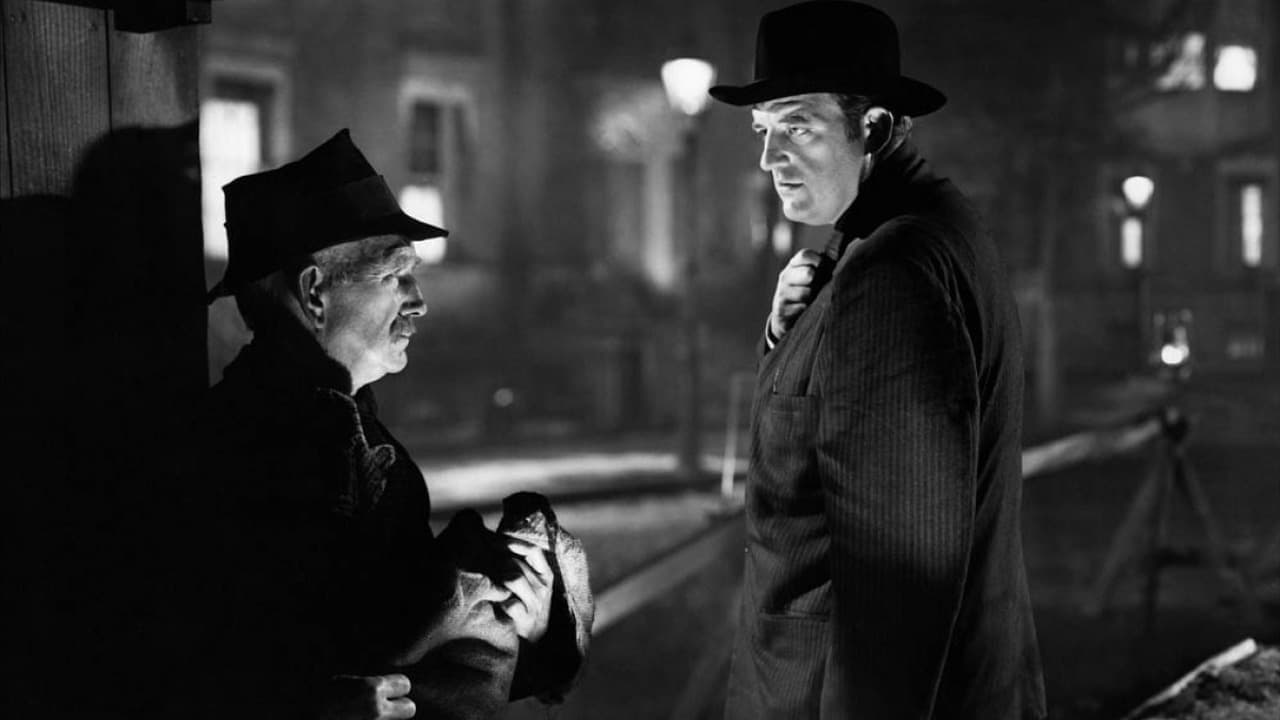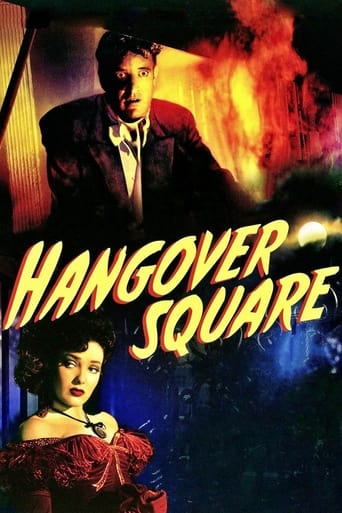

Just perfect...
... View MoreA lot of perfectly good film show their cards early, establish a unique premise and let the audience explore a topic at a leisurely pace, without much in terms of surprise. this film is not one of those films.
... View MoreThe movie turns out to be a little better than the average. Starting from a romantic formula often seen in the cinema, it ends in the most predictable (and somewhat bland) way.
... View MoreAll of these films share one commonality, that being a kind of emotional center that humanizes a cast of monsters.
... View MoreScreenplay: Barré Lyndon. Allegedy based on the 1942 novel by Patrick Hamilton. Copyright 6 February 1945 by 20th Century-Fox Film Corporation. New York opening at the Roxy: 8 February 1945. U.S. release: February 1945. U.K. release: 9 April 1945. Australian release: 12 July 1945. 6,966 feet. 77 minutes. SYNOPSIS: London, 1903. A well-known composer is unaware that he has a split personality.COMMENT: This brilliant screenplay is virtually the unaided work of Barré Lyndon. Only the title, the names of the two principal characters (Bone and Netta) and the idea of Bone's split personality derive directly from the novel. Masterstrokes like turning Bone into a composer, setting the period back from 1939 to the turn of the century, inventing the trigger mechanism of the discordant noise (in Patrick Hamilton's novel, Bone just clicks in and out of schizophrenia without rhyme or reason), plus the film's highly-charged set-pieces (none of which, including the fiery climax, are even so much as hinted at in the book) can be credited solely to Lyndon.All the screenplay's marvelous effects are superbly realized by director John Brahm, who re-enforces their impact with extraordinarily fluid camera movements and highly imaginative compositions.The movie is also most impressively served by its star, Laird Cregar, whose crash diet led to his untimely death at the age of twenty-eight, shortly after this picture was completed. Bone's words, "Music is the most important thing in the world to me!" and Middleton's reply, "You're wrong, Mr Bone! The most important thing is your life!" could have been applied to Cregar himself by simply substituting "acting" for "music". Certainly the weight loss evident in the film has made a remarkably difference to his appearance. His features, flatteringly photographed here by Joseph LaShelle, are actually quite handsome. Allied with his natural acting ability and his magnetic personality, his charisma would certainly have built him into a star of the first magnitude had he survived. I like the soft-spoken voice he adopts here too. There's no doubt the operation of transforming Cregar from character player to major star was outstandingly successful. Only one minor drawback: the patient died. Bernard Herrmann's music score must rank as one of the finest ever composed for a motion picture. Other production credits are equally superlative, yet, oddly, the movie was not nominated by any body for any awards at all. Nor, incredibly, were contemporary critics particularly enthusiastic.
... View MoreIn old London town an upcoming composer struggles to reconcile his place in polite society with his suspicions over his behaviour during stress induced blackouts. Then two beautiful women get involved.Enjoyable melodrama loosely based on DJ&MH. The three lead actors are all memorable: the composer with his hyperactive eyes, the smile of his female friend, and the sex-bomb that takes advantage. The pace is good and the music does its job well, with a very convincing turn at the keyboard which fooled me into thinking the actor was playing brilliantly.Only real weakness - the good romance remained superficial. Best thing is the crowd scenes - all done on set, but full of life and rhythm, with great extras and lovely details, creating a rich atmosphere.Overall, good entertainment.ps. The composer and sex-bomb suffered untimely deaths in the real world.
... View MoreFollowing the success of "The Lodger" (1944), Darryl F. Zanuck, never one to miss an opportunity, rushed star Laird Cregar into a sequel of sorts, "Hangover Square". Again Cregar is cast as a schizophrenic dual personality murderer.There's no doubt that he is a murderer as the opening scene has him stabbing an old antique dealer (Francis Ford) to death. Later we see him wandering aimlessly in the turn of the 20th century streets of London. He suddenly regains his senses and has no memory of the past few hours or of the dastardly crime he has just committed.Back at his home we learn that George Harvey Bone (Cregar) is an aspiring composer who is working on a concerto that he hopes will bring him fame. He is working under the tutelage of Sir Henry Chapman (Alan Napier) who just happens to have an attractive young daughter Barbara (Faye Marlowe) who has an attraction to Bone.Bone meanwhile has doubts about his blackouts and seeks the advice of Scotland Yard shrink Dr. Allan Middleton ( a bland George Sanders). Middleton advises him to ease up on his work and go out and have some fun. While watching a music hall revue, he is attracted to alluring showgirl Netta Longdon (Linda Darnell). She sees an opportunity to use George to her advantage by getting him to write songs for her while playing up to him. Unbeknownst to George, Netta has been carrying on with producer Eddie Carstairs (Glen Langan). When George discovers her deception he has another blackout and...........................................One can't help but notice the similarities between the Bone character(s) and Dr. Jekyll and Mr. Hyde. Both have good girl/bad girl relationships and both have mysterious blackouts where they commit violent acts. And of course there is the inevitable comparison to Cregar's Jack the Ripper character from "The Lodger". I personally didn't find him nearly as frightening in this film, bug eyes notwithstanding.Laird Cregar was apparently afraid of being type cast as a murderous villain. With the success of "The Lodger" he saw himself as a leading man and undertook a crash diet between the two films losing 100 lbs in the process. It is quite shocking to see the difference in Cregar's appearance in the two films. The stress on his heart evidently took its toll and he passed away at age 31 before "Hanover Square" was released.
... View MoreIn this variation on the Jekyll and Hyde story, a composer has sporadic episodes where his subconscious takes over and he has no recollections of his actions during these lapses when he comes to. This film reunites Cregar and Sanders with director Brahm from "The Lodger" the previous year, and, like the earlier film, it is visually opulent but the story is less than compelling. Cregar gives perhaps his best performance in this, his final film before his untimely death at age 31 just as he was coming into his own. Darnell, who would also die young, is a sensuous presence as the object of his obsession. Herrmann provides an impressive score, including a piano concerto used in the finale.
... View More